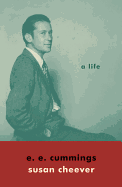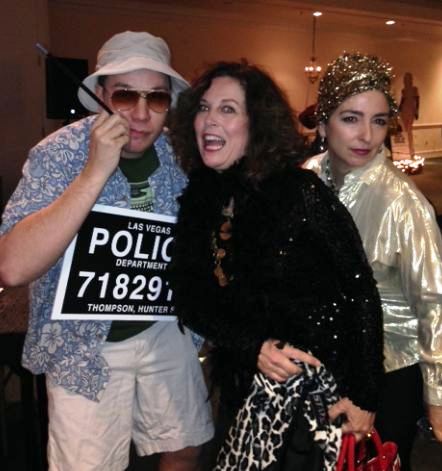 |
| Vegas, baby: Ford with authors Jenny Shortridge and Denise Kienan |
Transforming himself into debauched, eccentric Hunter S. Thompson is all in a day's work for novelist Jamie Ford. Outfitted in a Hawaiian-print shirt and fisherman's hat, gripping a cigarette holder and a bottle of booze, he recently attended a costume soiree at the Pulpwood Queen Girlfriend Weekend in East Texas, an annual gathering of authors and readers where this year's theme was "Viva Las Vegas, Baby!"
Ford has traveled from Illinois to Italy promoting his second novel, Songs of Willow Frost, since it was published last September. By the time he's done touting the tale, he'll have state-hopped and ocean-crossed his way to more than 45 events, including some in Norway. Ford is no stranger to the whirlwind schedule, having toured extensively for his hit debut novel, Hotel on the Corner of Bitter and Sweet.
"I say that my books have a career, I'm just along for the ride, which I stole from Pamela Anderson," joked Ford. (The actress quipped something similar about her breasts.)
Events for Ford's novels have ranged from a visit to a medium security prison to a country club tea to a walking tour along Seattle streets. One gathering drew more than 1,000 people, necessitating a state-mandated police escort, while at another a librarian asked him to ring her bell--literally--which was then added to a collection of signed chimes.
Making appearances is the flip side of Ford's "monastic lifestyle" as a writer and an aspect of the job he enjoys. "To interact with readers is really fun," he said. "I think of book events as 50% entertainment, 40% education and 10% reading, if that. It's literary vaudeville."
During talks, he delves into the historical aspects of the novels and shares stories behind the books. Set in Depression-era Seattle, Songs of Willow Frost centers on a young Chinese American boy, William, who glimpses a familiar-looking actress on screen; convinced she's his mother, he runs away from the orphanage where he lives to track her down. Hotel on the Corner of Bitter and Sweet also takes place in Seattle, shifting between the 1980s and the 1940s, when 12-year-old friends Henry and Keiko are separated after she is sent to an internment camp for Japanese Americans during World War II.
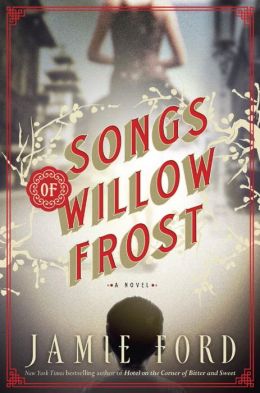 Readers are often curious to know which aspects of Ford's novels are autobiographical. One answer is that the stories are infused with feelings drawn from real-life circumstances. "I think authors channel quite a bit of emotion in their work. There were father and son things that came up in Hotel, and I just went with it," said Ford. Songs of Willow Frost, on the other hand, is "definitely a mother/son book. I dedicate the book to my mom. Not that it's biographical or autobiographical, but there is a lot of emotional angst there. Without it being a Dr. Phil moment, it comes from an emotional well somewhere."
Readers are often curious to know which aspects of Ford's novels are autobiographical. One answer is that the stories are infused with feelings drawn from real-life circumstances. "I think authors channel quite a bit of emotion in their work. There were father and son things that came up in Hotel, and I just went with it," said Ford. Songs of Willow Frost, on the other hand, is "definitely a mother/son book. I dedicate the book to my mom. Not that it's biographical or autobiographical, but there is a lot of emotional angst there. Without it being a Dr. Phil moment, it comes from an emotional well somewhere."
Sometimes event attendees share their connections to the stories. Hotel on the Corner of Bitter and Sweet has opened doors for some people once reluctant to speak with family members about their experiences in war-time internment camps, which changed when they read the book together. Ford was even invited to a reunion of former internees of Camp Minidoka, depicted in the novel, where "Don't Fence Me In" was a darkly comic selection on the karaoke repertoire.
At one of Ford's appearances, a woman announced that the figure in the frontispiece photo in Hotel on the Corner of Bitter and Sweet is her aunt, Mae Yanagi. The identity of the little girl shown in the image, which is housed at the National Archives, hadn't previously been known. Mae and her family have since joined Ford at signings in the Sacramento area, where she lives. Another memorable moment took place when a woman approached Ford at an event to share that like William in Songs of Willow Frost, she had grown up at the Sacred Heart Orphanage in Seattle, abandoned by a mother who couldn't afford to provide for her and her siblings.
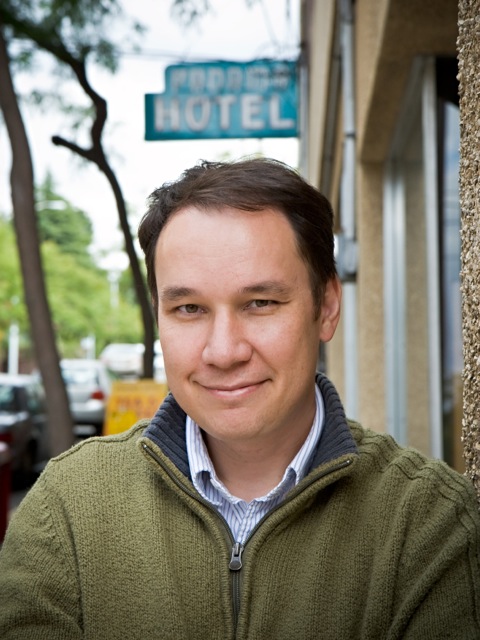 Inquiring minds also want to know how life has changed for Ford, a former advertising executive, since he became a bestselling author. "I think that's a funny question because I'm like, 'Is my life supposed to change?'" he said. "You pull back the curtain, it's not quite so glamorous. I still have to pick up dog poop in the backyard." When he's not on the road, Ford is at home in Montana playing "Mr. Mom" to a blended family that includes six teenagers.
Inquiring minds also want to know how life has changed for Ford, a former advertising executive, since he became a bestselling author. "I think that's a funny question because I'm like, 'Is my life supposed to change?'" he said. "You pull back the curtain, it's not quite so glamorous. I still have to pick up dog poop in the backyard." When he's not on the road, Ford is at home in Montana playing "Mr. Mom" to a blended family that includes six teenagers.
A self-described "geeky kid" who logged a lot of time in a Carnegie library while growing up, Ford is right at home in bookish venues. "I visit places I like to be even when I'm not traveling. I could spend time in fewer airports, but I could be in a different bookstore or library every day and be quite happy," he said. "I love talking about books. Not just my books, anyone's books."
Regardless of the locales where Ford appears, audience members from Norway to Kentucky share a common tie. "The interesting thing I've found is that readers are readers, whether they have southern accents or Boston accents or they're Seattle hipsters or they're homeless or in a prison," said Ford. "Reading is a beautiful common denominator. They all read for the same reason, for entertainment and escape, but also to enlarge their appreciation of the human condition." --Shannon McKenna Schmidt
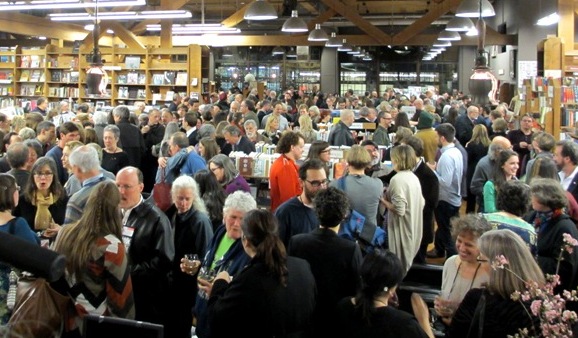 "What I truly enjoy about these dinners is witnessing firsthand the fervor indie people bring to running their bookstores. Work for them is creating community, building relationships with customers, and handselling books because they've taken the time to learn what individual customers like. What indie people want from me at these dinners is a sense of whether my book belongs on their shelves; i.e., can they visualize actual customers to whom they can hand the novel and say with assurance, 'You will love this.' "
"What I truly enjoy about these dinners is witnessing firsthand the fervor indie people bring to running their bookstores. Work for them is creating community, building relationships with customers, and handselling books because they've taken the time to learn what individual customers like. What indie people want from me at these dinners is a sense of whether my book belongs on their shelves; i.e., can they visualize actual customers to whom they can hand the novel and say with assurance, 'You will love this.' "










 In the third quarter ended December 28, revenues at Indigo Books & Music rose 3%, to C$332.4 million (U.S.$300 million), and net earnings fell 61.4%, to C$8.5 million (U.S.$7.67 million).
In the third quarter ended December 28, revenues at Indigo Books & Music rose 3%, to C$332.4 million (U.S.$300 million), and net earnings fell 61.4%, to C$8.5 million (U.S.$7.67 million).
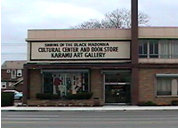 The
The 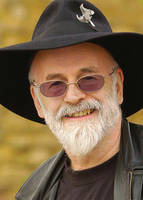 Sir Terry Pratchett will be
Sir Terry Pratchett will be 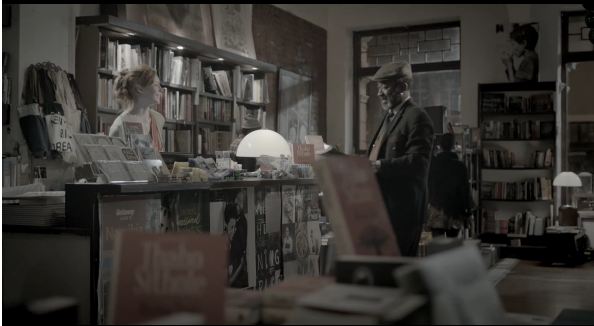
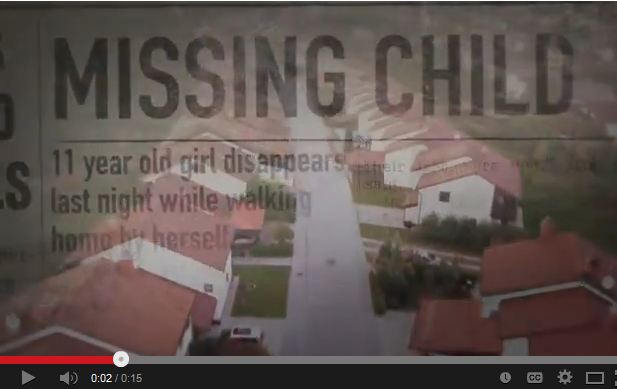 The Deepest Secret
The Deepest Secret In a perfect, if frigid, blend of fact and fantasy,
In a perfect, if frigid, blend of fact and fantasy, 
 Readers are often curious to know which aspects of Ford's novels are autobiographical. One answer is that the stories are infused with feelings drawn from real-life circumstances. "I think authors channel quite a bit of emotion in their work. There were father and son things that came up in Hotel, and I just went with it," said Ford. Songs of Willow Frost, on the other hand, is "definitely a mother/son book. I dedicate the book to my mom. Not that it's biographical or autobiographical, but there is a lot of emotional angst there. Without it being a Dr. Phil moment, it comes from an emotional well somewhere."
Readers are often curious to know which aspects of Ford's novels are autobiographical. One answer is that the stories are infused with feelings drawn from real-life circumstances. "I think authors channel quite a bit of emotion in their work. There were father and son things that came up in Hotel, and I just went with it," said Ford. Songs of Willow Frost, on the other hand, is "definitely a mother/son book. I dedicate the book to my mom. Not that it's biographical or autobiographical, but there is a lot of emotional angst there. Without it being a Dr. Phil moment, it comes from an emotional well somewhere." Inquiring minds also want to know how life has changed for Ford, a former advertising executive, since he became a bestselling author. "I think that's a funny question because I'm like, 'Is my life supposed to change?'" he said. "You pull back the curtain, it's not quite so glamorous. I still have to pick up dog poop in the backyard." When he's not on the road, Ford is at home in Montana playing "Mr. Mom" to a blended family that includes six teenagers.
Inquiring minds also want to know how life has changed for Ford, a former advertising executive, since he became a bestselling author. "I think that's a funny question because I'm like, 'Is my life supposed to change?'" he said. "You pull back the curtain, it's not quite so glamorous. I still have to pick up dog poop in the backyard." When he's not on the road, Ford is at home in Montana playing "Mr. Mom" to a blended family that includes six teenagers.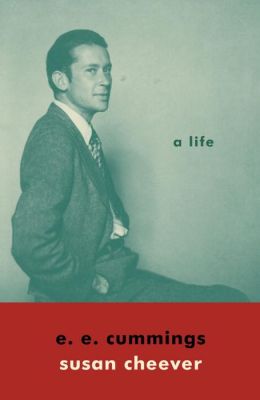 Susan Cheever (Home Before Dark) likes the poet Edward Estlin Cummings, aka e.e. cummings, very much. He and her father, John Cheever, were friends, so she was able to see Cummings read and experienced his poems and his exuberant and eccentric presentation style firsthand. Cheever considers him one of the "great and most important American poets," our "only true modernist." His reputation has fluctuated; when he died in 1962 it was on the rise, then it fell. Today, Cheever says, he's "too popular for the academy," yet at times "too sassy" for high school.
Susan Cheever (Home Before Dark) likes the poet Edward Estlin Cummings, aka e.e. cummings, very much. He and her father, John Cheever, were friends, so she was able to see Cummings read and experienced his poems and his exuberant and eccentric presentation style firsthand. Cheever considers him one of the "great and most important American poets," our "only true modernist." His reputation has fluctuated; when he died in 1962 it was on the rise, then it fell. Today, Cheever says, he's "too popular for the academy," yet at times "too sassy" for high school.